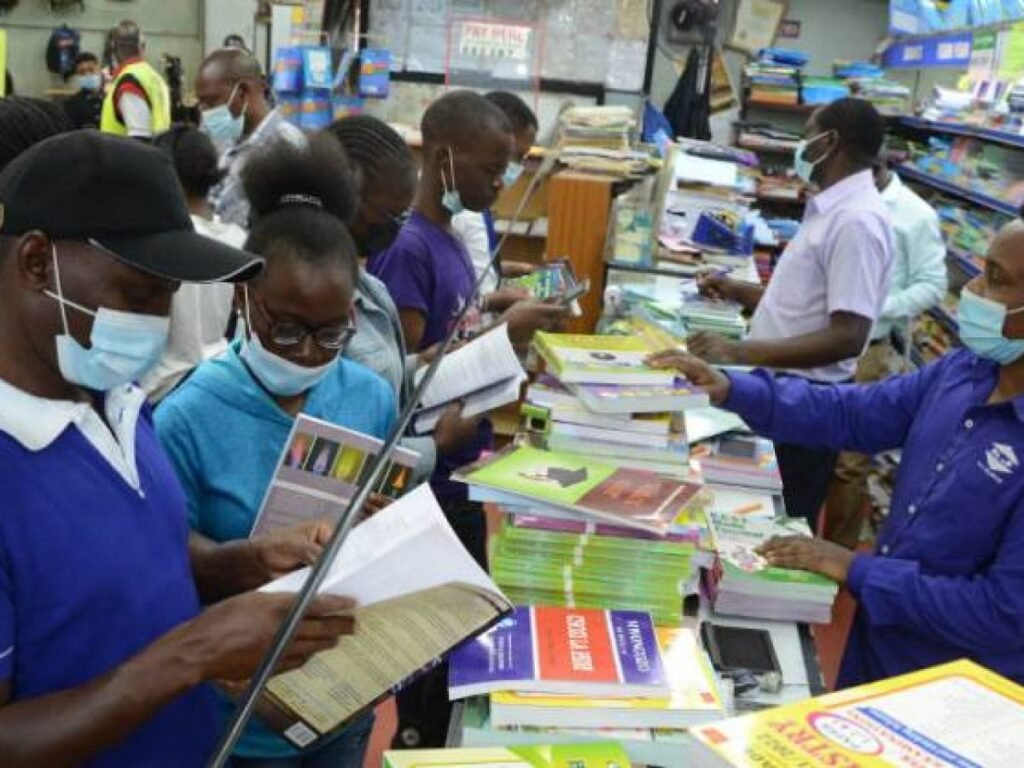General News
Pokot Mother Of Six Who ‘Wedded’ Holy Spirit Found Dead

The woman who got‘ wedded’to the Holy Spirit is dead. The spoiled body of Elizabeth Nalem, a mama of six from Makutano city, West Pokot County, has been plant at a timber.
Police reports indicate that Nalem had left her home a week before with a panga and a walking stick headed to the timber only for her putrefying and crippled body to be plant on Saturday.
Police say there’s a possibility the deceased would have been attacked by wild creatures and feasted on her remains.
Kapenguria OCPD Kipkemoi Kirui said examinations have been launched to establish whether she was attacked.
Kirui said the body must have been in the backcountry for further than a week.
Nalem came to the spotlight in May last time when she said‘I do’in a rather unusual marriage.
It was a normal Tuesday autumn as residers of Makutano city flocked a church to witness her big day. The quiet thoroughfares suddenly lit up as dozens cheered with ululations and dance as Nalem walked down the aisle.
In an endearing white marriage gown and accompanied by musketeers and faithful, Elizabeth made a grand entrance to the city causing near palsy.
She latterly travelled to Amudat District in Uganda for her honeymoon and to serve her God. When The Standard caught up with her, she said God spoke to her and told her to cut the world and spread the Gospel.
The deceased said she started walking from Makutano after her marriage and was directed to visit Uganda for a campaign while on her honeymoon.
Nalem said she closed her café, disowned her hubby and will not go back to her city council officer job until she accomplishes her charge.
“God has shown (sic) me to travel to the United States when am done with Uganda. He told me to traverse the world but I told him I won’t be able and requested him to recruit other members to help me in spreading the gospel,” she said.
She added that her hubby had contended with her to go back home but she had refused until her recently‘ wedded’Spirit hubby granted her authorization.
“God knows how my children will eat I have left them in God’s hands,” she said.
General News
IMF Criticizes Kenya’s Fuel Subsidy Re-Introduction, Warns of Budget Distortion

The International Monetary Fund (IMF) has criticized Kenya for re-implementing the fuel subsidy scheme, expressing concerns that the lack of funds to pay oil marketers could distort the budget.
Despite a previous commitment by President William Ruto in 2022 not to subsidize pump prices, the government reintroduced the subsidy, preventing petrol and diesel prices from reaching higher levels in October 2023.
The IMF argues that the subsidy was applied without available funds, as the Treasury has yet to pay oil marketers at least Ksh9 billion ($55.6 million) accumulated from the previous year. President Ruto’s decision to reinstate subsidies goes against conditions set by the IMF for accessing loans.
Petrol and diesel prices, which were Ksh217.36 ($1.34) and Ksh205.47 ($1.27) respectively in Nairobi in October 2023, remained lower than the potential Ksh220.43 ($1.36) and Ksh217.11 ($1.34) due to the subsidy. However, the IMF disapproves of the decision, emphasizing that the removal of the subsidy was a key condition for a 38-month budget support scheme.
The IMF criticizes the prolonged process of forming a taskforce and delays in implementing decisions regarding fuel pricing.
The removal of the subsidy in May of the previous year led to record-high pump prices, crossing the Ksh200-mark later in the year due to a combination of subsidy removal and a VAT increase to 16 percent.
Kenya’s administration, faced with rising fuel costs, chose to reinstate the subsidy, prompting the IMF to raise alarms over the lack of budgeted funds and potential distortions in the country’s financial plans.
The ongoing disagreement highlights the challenges and consequences associated with balancing domestic economic policies and meeting international financial commitments
General News
Parents in Meru County Turn to Second-Hand Books Amid Economic Hardships

As the back-to-school rush season unfolds in Meru County, a growing number of parents are making a strategic choice to purchase second-hand books for their children.
This decision stems from the challenging economic conditions that have prompted families to seek ways to cut costs.
Among these parents is Ms. Prisca Gakii, who revealed that opting for second-hand books allows her to save money, which can then be allocated towards essential expenses like school fees.
She highlighted a practical advantage for Form-One students, emphasizing that using older books can protect them from potential theft, as new books often become targets for less scrupulous classmates.

Ms. Gakii pointed out a notable price difference, citing an example of a new Oxford dictionary priced at almost Sh1,900, compared to a used one available for Sh1400.
She justified her preference for the older but more affordable option, emphasizing that they contain the same content.
Janet Wamuyu, a second-hand books trader, shed light on the lucrative nature of their business during the opening of the first term, which coincides with the peak season.
As learners transition to new grades or classes, there is a heightened demand for various books, including dictionaries, Kamusi, and Golden Bells.

Wamuyu explained that this period, especially when Form-One students are joining school, facilitates easy acquisition of books for new stock.
The trading process involves exchanging books for the next grade or class at a lower rate, providing an economical alternative for parents instead of purchasing an entirely new set of books.
She further noted that their source of new stock comes from parents whose children have completed their studies and no longer require the books.
Despite the success during the peak season, Wamuyu acknowledged the challenges faced during other times of the year when only a few revision books are in demand, highlighting the cyclical nature of the business in Meru County.























